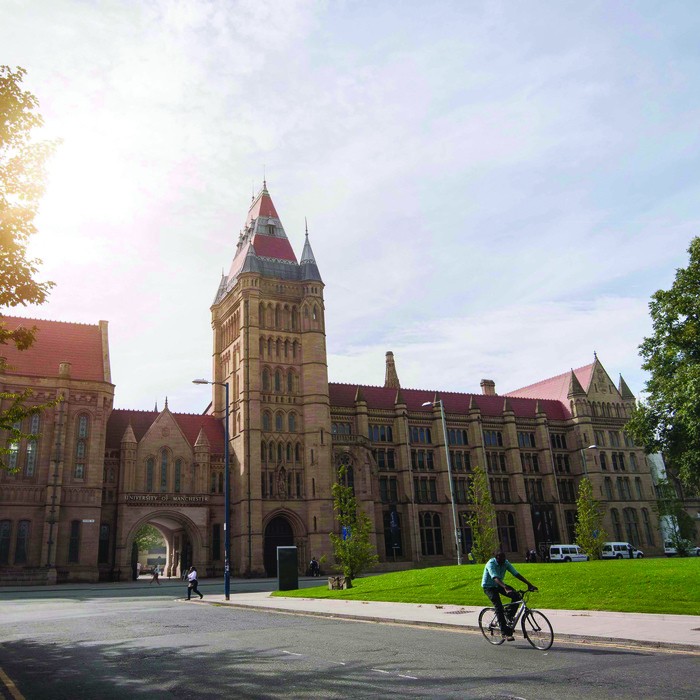Manchester rising stars honoured with Future Leaders Fellowships
Three Manchester researchers have been selected among the very best researchers and innovators promising to deliver global impact.
The brightest researchers and innovators at universities across the country are to become the best in their fields, thanks to government investment to be announced today.
In a speech in London, Science Minister Chris Skidmore will confirm the first wave of Future Leaders Fellowships – 41 early career researchers at universities from Manchester, to Edinburgh and from Belfast to London, who will each benefit from a share of £40 million towards cutting edge research towards addressing fundamental global issues including tackling climate change and revolutionising travel across cities.
Science and Innovation Minister Chris Skidmore said: “From Sir Tim Berners-Lee’s creation of the World Wide Web, to Rosalind Franklin whose work was critical in understanding DNA, we have a rich history of talented individuals who have paved the way for ground-breaking research and discoveries in their fields.
“This support to the next generation of scientists and researchers is a key part of our modern Industrial Strategy, and our commitment to raise R&D spend to 2.4% of GDP by 2027 will maintain the UK’s position as a world-leader in science and innovation and building on our historic legacy.”
This support to the next generation of scientists and researchers is a key part of our modern Industrial Strategy, and our commitment to raise R&D spend to 2.4% of GDP by 2027 will maintain the UK’s position as a world-leader in science and innovation and building on our historic legacy
Supporting the Industrial Strategy’s Grand Challenges, the new Fellows and their projects from The University of Manchester include:
- Dr Constance Smith, whose research is aimed at tower block failures, high-rise living and global urbanism. Her forthcoming book, Nairobi in the making: landscapes of time and urban belonging, explores how the remains of the past influence contemporary urban lives and ways of anticipating the future.
Dr Smith said: “On 14 June 2017, a devastating fire broke out in Grenfell Tower, west London. On the same day, a tower block collapsed in eastern Nairobi, Kenya. In different ways, both tragedies exposed the injustices of urban politics, the volatility of construction materials, and disregard for regulations and planning. These tower block failures also set in motion new forms of political activism and demands for new kinds of urban futures.”
- Dr Filipa Cox works on the ecology of soil fungi, studying the role that ecological trade-offs play in driving ectomycorrhizal fungal community assembly. These fine-scale processes can have large-scale implications in the cycling of carbon, nutrients and other elements through the environment.
Dr Cox said: “With this fellowship I will provide insights into a mutualism that underpins most terrestrial ecosystems and help to develop future research and policy on soil health, agriculture and forestry. The work supported by the fellowship will enable me to establish an independent research group tackling fundamental scientific problems where tree-soil interactions play key roles.”
- Dr Conor Fitzpatrick’s work has included projects at CERN measuring the differences between matter and antimatter.
Dr Fitzpatrick said: “I will use my Future Leaders Fellowship at The University of Manchester to develop new ways for these decisions to be made, so that we can squeeze as much useful information as possible out of these great machines in real-time in the hunt for new discoveries, and new understanding that will bridge the gap between the very largest and very smallest scales we have ever measured.”
The Fellows’ ground-breaking work also forms a key part of maintaining the UK’s status at the forefront of cutting-edge research and innovation long into the future. The UK is already a research superpower, producing six per cent of the world’s total research publications and 15 per cent of the world’s most highly cited articles.
UK Research and Innovation Chief Executive Mark Walport said: “The Fellowships offer opportunities to move across disciplinary boundaries and between academia and industry. These Fellowships will enable us to grow the strong supply of talented individuals needed to ensure that UK research and innovation continues to be world leading.”



